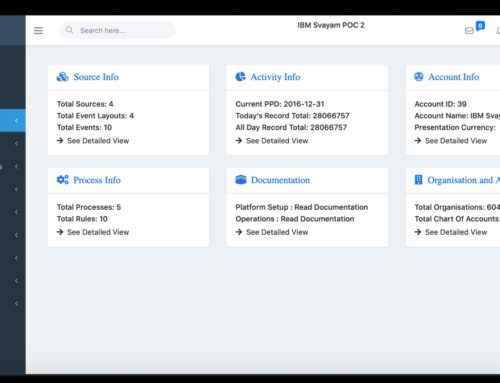For nearly a year Adeolu “Ade” Alao and Kip Twitchell have continued a weekly to bi-weekly discussion about financial systems, joined in the last two months by Sandy Peresie. This blog post attempts to summarize the conclusions and learnings of these discussions.
As an introduction to the participants, Kip Twitchell has spent his career working on financial systems, including reporting, ERP, accounting and related systems. His bio can be found on his personal blog https://ledgerlearning.com/about/.
Kip met Ade through Linked-in as Ade posted interesting playlists of financial system related videos on YouTube that included Kip’s vlog entries. Ade has a long-held passion for improving the world of financial systems, for the benefit of all stakeholders. His ability to search for relevant materials – be it blog posts, videos or product description – glean from them the most insightful points, and correlate them to other materials is really remarkable.
One of Ade’s first messages to Kip summarizes well their feelings and experiences with the problems.
I have always been fascinated with learning about global monetary and financial systems to understand why the system is designed to work few and not many. To understand the
1. Causes of the problems.
2. Consequences of the problems
3. Cures to the problems
I have been on this quest for the past ten years.
When I discovered your website and blog. I can immediately understand how you feel about the problems with our financial systems at least from personal finance perspective. And to realize you’ve carry this burden for 30 years actually was a big encouragement for me not to give up on my quest to build a solution to some of the identified problems.
Appreciate you Kip.
Regards.
Really Simple Commerce
Much of the initial discussions focused on two points in Kip’s vlog post about a prototype system he built, a portion of which is called Really Simple Commerce.
RSC was envisioned to be a very simple way of enabling a virtual marketplace and payment system, with the idea that the ledger would be shared between counterparties. The POC simulates three cell phones and a server:
(1) an authorizer,
(2) a consumer,
(3) and a store owner.
It combines payment, shared ledgers, democratization of credit creation, social networks around financial data, and may ultimately extend to virtual currencies. The transaction capture outputs from such a system would be posted into a universal ledger, that would provide the on-going control for the members of the community. The results of the prototype can be viewed in this Coding with Kip episode. Additional videos that help explain the implications of this POC can be found in this Conversation with Kip Playlist.
Cash Flow Forecasting
Almost immediately, Ade noted his frustration with current financial reporting systems which are so historically focused, to the detriment of their predictive abilities. Ade often uses some personal finances to make the point, but recognizes the principles involved can be applied to any size organization.
For example, Ade noted that if one wants to make a difference in personal finance for individuals, what is needed is a forecast of cash flow, looking for any point in the future when cash needs exceed cash on hand at that point. This is the minimum standard of effectiveness for any system.
Ade has recently noted that if the finance system included more information about contracts–in a structured, machine understandable format–that terms of them could be used to project into the future in many instances which can often be more accurate than historical payment data. If coupled with the historical data, it may be made even more effective.
Inside or Outside the System
Ade and Kip spent quite a bit of time looking at possible building blocks for a RSC type system. Some conclusions from the investigation are:
- There are few open source solutions developing expansively in this space
- Open Banking licenses, which vary by geography, tend to only be about transaction services, not access to large amounts of customer financial data
- There are tremendous pressures for existing regulated financial institutions to put customers on existing systems which were designed decades ago, and because of business pressures are not being transformed
- Data aggregators are stewards of the data for the existing institutions, not for the consumer and creator of the data.
- Latency and other inaccuracies in newly developing data aggregators also make these platforms unsuitable for long-term development.
It seems likely that the new system will need to develop in some manner outside of current institutions.
At the same time, we concluded that given the fragmented nature of today’s financial systems and data, an open source or collaborative approach to the development of the new world is required.
The Impact of Time
Ade noted a few insights about today’s financial systems:
Compounding Interest: Ade noted that the continual nature of growth of compounding interest exacerbates the growing wealth disparity in the world. He asked an interesting question: why should such a thing be unbounded in time.
Capital Accumulation: Ade noted that if we think about capital in a different way, it would allow anyone to participate in capital accumulation. This becomes a little more clear if one thinks about the RSC approach of a merchant granting credit to someone to purchase a set of materials: which of those materials are consumed, and which ones are useful for production into the future? The later materials should be considered part of capital accumulation for anyone.
Revaluation: We discovered that there was nothing in RSC that allowed for the revaluation of assets overtime. Capital markets provide that revaluation because individuals selling the same assets today are valued at today’s prices. We did not solve how to expand RSC to accommodate this need for capital accumulation.
Tokenization: Ade noted that tokenization is being able to take any asset to a marketplace as a token and exchange it for any other asset.
Marketing: Ade noted that today’s uses of financial data are very limited, both for the owner and potential partners. For example, much of the world’s work in marketing is wasted because it is to people highly unlikely to purchase. Owners of financial data willing to allow use of their financial data more broadly could receive much more effective recommendations about products and services that will be helpful to them. This would improve efficiencies for both individuals and companies.
Prototyping
I suggested to Ade that we could really simulate a very simple shared ledger simply by thinking about how we would share a spreadsheet, as one does with cloud based systems, with the commitment from both parties to the following conditions:
- Each party has to signify approval to any data entered in the spreadsheet (perhaps simply by a tick mark in a column at the end of the transactions)
- Each party commits to not edit any prior data, but instead to enter new data to represent any correction that is need to the data.
Kip found a set of personal financial data that could be used to do some of this prototyping if it was pursued.

